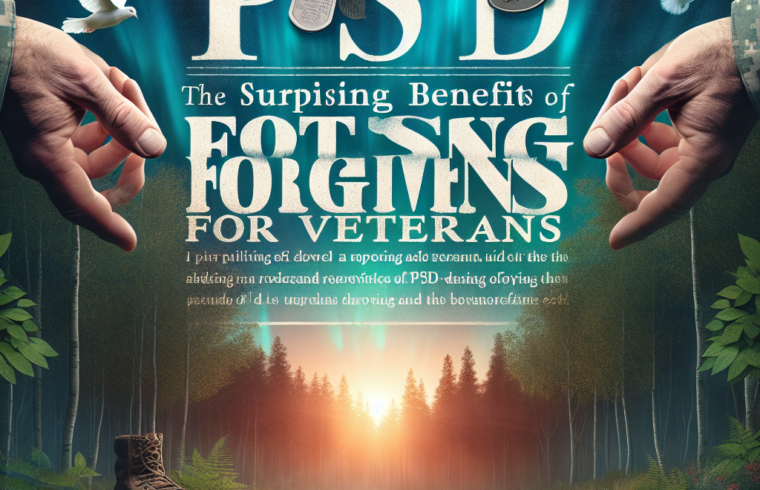==> Thank you for reading this post! Click Here If you are looking for support and Victory over PTSD.
Understanding PTSD and Its Impact on Veterans
What is PTSD?
Post-Traumatic Stress Disorder (PTSD) is a term that’s been thrown around a lot, especially in conversations about our veterans. It’s not just about having bad dreams or flashbacks; it’s a complex mental health condition that can happen after a veteran goes through traumatic experiences. I remember hearing some of my buddies talk about how they felt after coming back from deployment, and it really opened my eyes to just how deep it can go.
PTSD can manifest in many ways. It affects your emotions, thoughts, and even how you interact with others. It’s more than just the individual; it impacts families, friends, and communities. Veterans often feel isolated because they think no one else can understand what they went through, which can amplify feelings of loneliness and despair.
It’s critical to recognize that PTSD is a common reaction to extraordinary stress. It doesn’t mean someone is weak; it’s a natural response that many veterans experience. Understanding this condition is the first step toward healing, and it can help change the stigma around mental health for veterans.
The Path to Forgiveness
What Does Forgiveness Mean?
Forgiveness can seem like a heavy word, especially when intertwined with the traumatic memories of combat. To many, it may feel impossible to forgive those who have caused so much pain. But I learned that forgiveness isn’t just about letting someone off the hook; it’s more for your own peace of mind than anything else.
In my experience, forgiveness means acknowledging the hurt and making the choice to free yourself from the burden of carrying that pain. It doesn’t mean forgetting the past but understanding its impact on your present. This realization has helped me deal with my own struggles and find some semblance of peace.
Forgiveness can take time, and that’s okay. Each person’s journey is different, and it’s essential to go at your own pace. It’s about letting go of the anger so you can start healing, allowing you to reclaim joy and serenity in your life.
Building Emotional Resilience
How Forgiveness Affects Mental Health
Let me tell you, the moment I started exploring forgiveness within myself, I felt a weight lift. It’s pretty incredible how releasing negative feelings can lead to better mental health. Studies have shown that forgiving reduces anxiety and depression—seriously, it’s true!
From my own journey, I realized that embracing forgiveness helped create a safe space for me to process my emotions. It allowed me to confront and deal with my PTSD in a way that felt constructive. Trust me, it’s a game-changer because the less energy you spend on holding onto the past, the more you can invest in your future.
This journey isn’t always smooth sailing, but forming emotional resilience can help you bounce back stronger. It encourages self-compassion, leading to a more profound understanding of one’s feelings. It’s about saying, “Hey, it’s okay not to be okay!” and allowing yourself to heal.
Reconnecting with Others
The Power of Community
There’s something magical about connecting with fellow veterans who’ve walked similar paths. Sharing experiences and stories helps build a sense of belonging, a community where everyone gets it. It was in these moments of candid conversation that I truly began to see the power of solidarity among veterans.
Get Support and Help with Recovery! Visit us for more Information and Support
By forgiving ourselves and each other, we create an environment that fosters healing. It encourages open conversations about PTSD and mental health without the usual fear or stigma. It’s amazing how sharing burdens can make them feel lighter, and that can really accelerate the healing process.
Finding a community that understands the value of forgiveness is an invaluable resource. Group therapy or peer support can create bonds that revitalize our spirits. Knowing we are not alone in our struggles makes a substantial difference in how we tackle these battles.
Embracing a New Perspective
Finding Meaning After Trauma
One of the unexpected benefits of navigating PTSD and forgiveness is discovering a new perspective on life. It took me a while to realize that my experiences, however hard, shaped who I am today. Instead of being weighed down by trauma, I learned to view it as part of my story, giving me the strength to overcome other challenges.
Finding meaning in hardship can be revolutionary. I found that by focusing on what I can change now, I was able to let go of the regrets and anger from the past. It’s about focusing on the lessons learned and using them to create a more fulfilling life.
When you embrace this new perspective, life becomes an opportunity for growth and gratitude. Each day can be a chance to affirm your resilience and share your stories of survival with those who need to hear them—an invaluable lesson for veterans and their families alike.
Frequently Asked Questions
1. What is the connection between PTSD and forgiveness?
PTSD and forgiveness are closely linked. Forgiveness can help reduce the emotional burden associated with trauma, allowing veterans to find peace. It isn’t about excusing what happened but about freeing yourself from the negativity that comes with holding onto resentment.
2. How can forgiveness improve mental health?
Forgiveness can lead to reduced symptoms of anxiety and depression. It fosters emotional resilience and allows individuals to process their emotions constructively. This change in perspective can pave the way for healing and personal growth.
3. Is it easy to forgive after experiencing trauma?
Forgiveness is often a challenging journey, especially after trauma. It takes time, self-reflection, and patience. Each individual’s path is unique, and it’s crucial to go at your own pace without rushing the process.
4. How can veterans find support in their forgiveness journey?
Veterans can find support through peer groups, therapy, or community organizations focused on mental health. Building a support network that understands the challenges of PTSD and forgiveness can be instrumental in the healing process.
5. What are some first steps towards forgiveness?
Some first steps include identifying your feelings, understanding the impact of your trauma, and recognizing that forgiveness is a personal choice. Seeking guidance through therapy or support groups can also provide the framework needed to start this journey.













